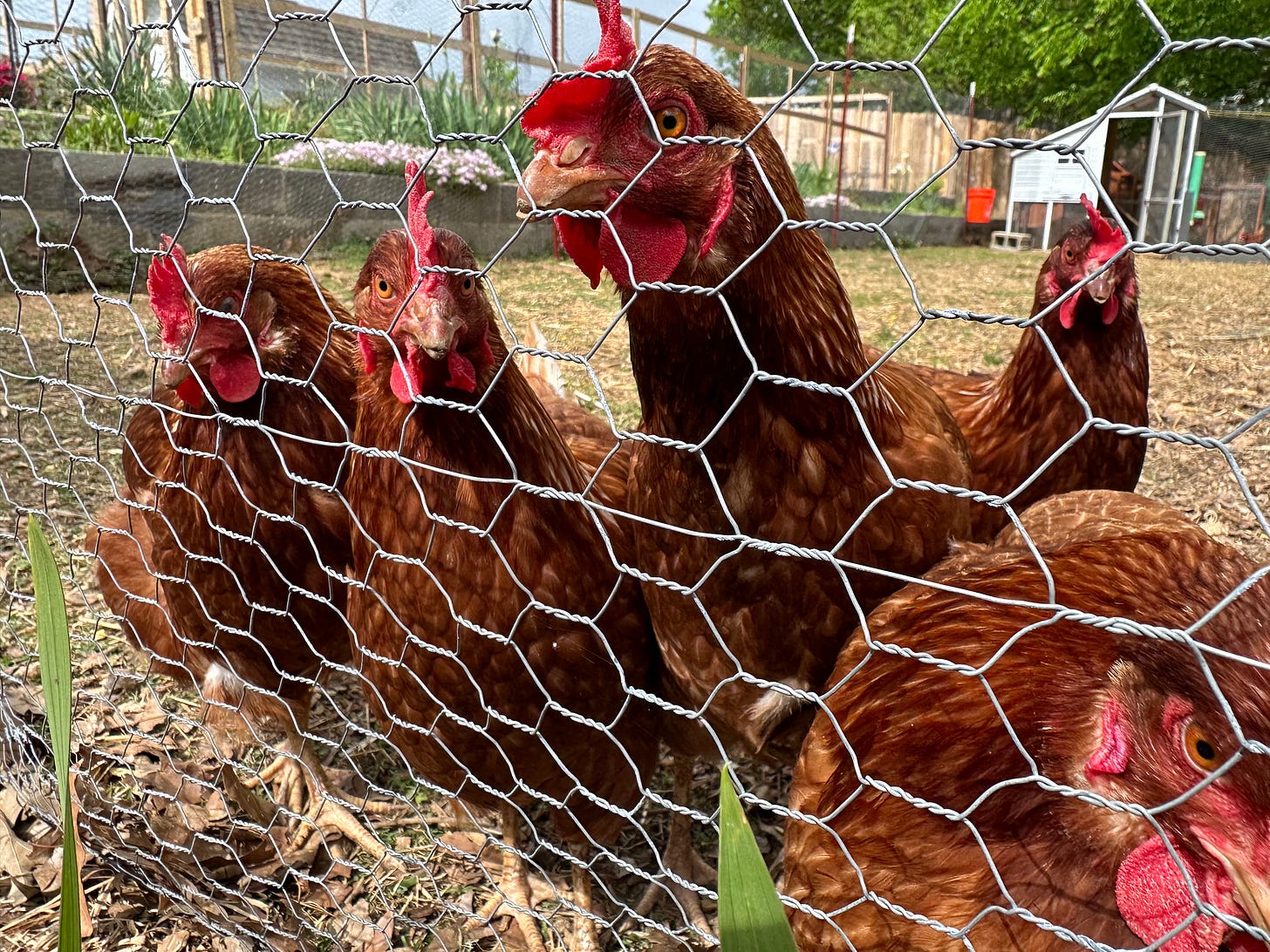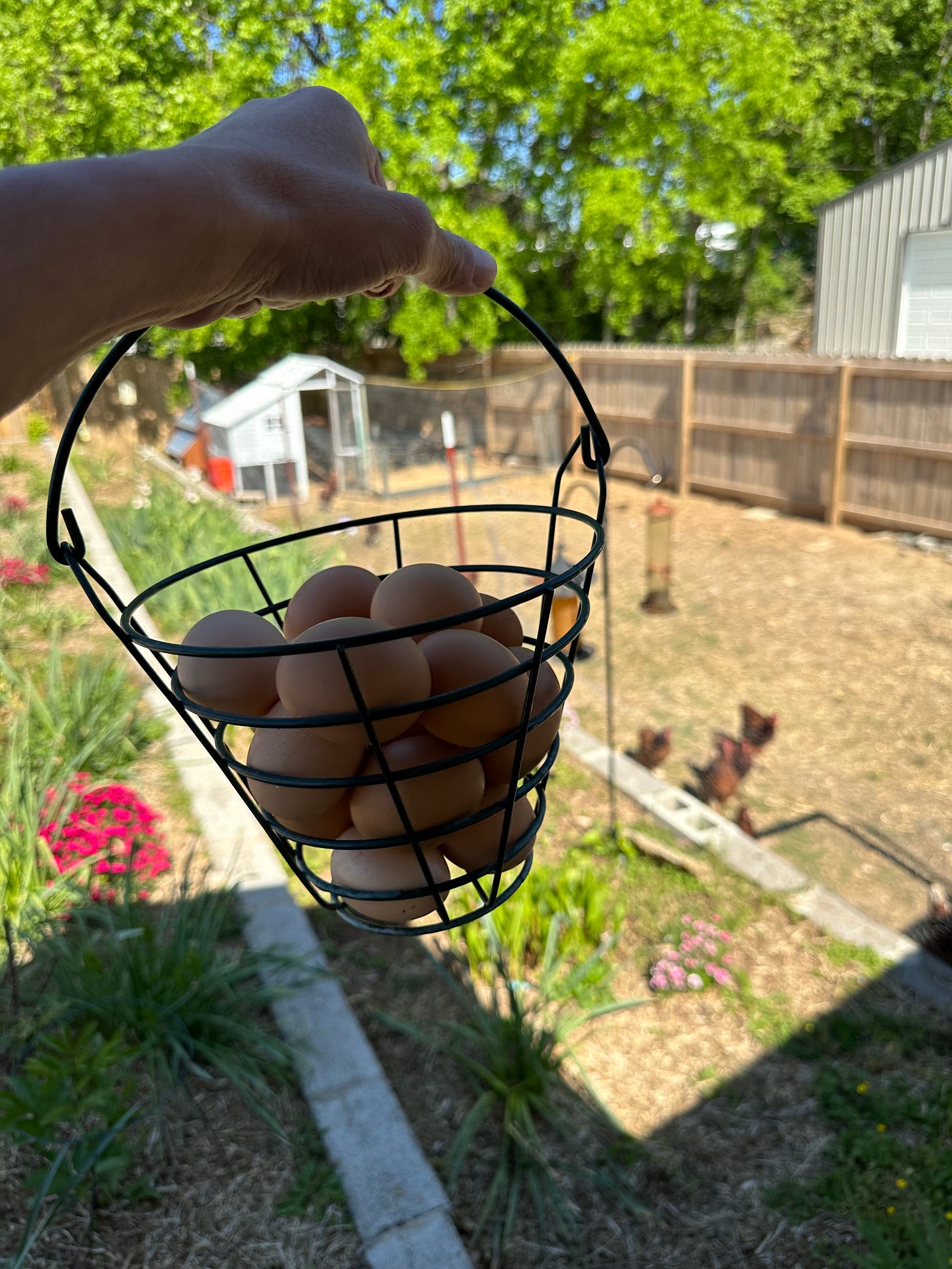In the last year or so I’ve been exploring the worlds of permaculture, homesteading, and self-reliance. They say the gateway drug into this lifestyle is chickens and I would concur. The aspect of this practice (homesteading, etc) that cranks my tractor - pun intended- is how accessible it is to anyone. Anyone can do this! We can all grow something or steward something. I would argue (and will in a later post) that tending to the earth and to the animals is one of the nearest ways we return to Eden. Whether or not we are overwhelmed or intimidated by the flora and the fauna doesn’t matter. We are still drawn toward beauty, toward the life we see waving in the wind or cantering across the field. I love the idea of reconnecting people to that practice, the practice of caring for the soil for beauty, growing your own food for independence, and managing herds and flocks. Chickens are just one aspect of that approach so this post will simply be my hot take on my flock and philosophy. Everyone should have a philosophy on chickens.
I have the Comet breeds which are the best of the best in my opinion. They are a hybrid breed descending from Rhode Island Reds. They have docile characteristics and are not prone to aggression toward each other. Of course there are always pecking orders, but everyone manages. Comparatively, Comets aren’t as loud as other breeds can be. The three main cries I’m familiar with from my gang is anxious demands for food, the “I-laid-an-egg” declaration, and the occasional banter between birds.
The systems I have in place for my hens is a two section run with their coops. A run is just a semi-secure to totally secure area that chickens can explore and forage without wandering away. The first section of run just outside their coop door is designed to be mostly predator proof. They come and go from their coops in this area and I simply close the main gate to secure them overnight. This area has additional netting over the top and an enforced border around the perimeter. The second run area doesn’t have any netting on the top and is not quite as robust in terms of security. This wider area is meant to keep them entertained. Chickens are very curious and just love to explore. If they can express this, they tend to be happier and thus, healthier.
In terms of water, I’ve recently experimented with a couple of Home Depot buckets drilled in with some waterers at the bottom. I used the handle to hang the buckets from something sturdy and the hens took to it immediately. This keeps the water from pooling anywhere as in a cup like some waterers have, reducing algae build up. The volume the buckets hold keep me from having to fill their water supply daily. For food I’ve done two approaches. I have the feeders that you can fill up and forget for about a week. However, this can attract squirrels and various vermin, and it can also train the hens not to forage. So, usually, I find myself daily letting them out and tossing some feed in the mornings.
My chicken philosophy is as follows: While I want to care for the hens I don’t see them as pets and would prefer to do as little as possible in terms of management. Some people take hen care to an intense level. I don’t think I want to do anything intense these days, thus the feeding and watering systems I’ve mentioned and the somewhat risky approach of not closing them up tight every night. I clean out their coops probably once a month - perhaps a crime to some folks. Oh well. I chase them and spray them down with mite and tick preventative. And I ensure their living spaces are free of tortures.
It turn, they’ve tilled up my garden plot for me over the winter, mowed the grass in their run for me, and provided eggs. It seems like a good exchange between us. Their behaviors are fascinating to me and often I just sit and stare at them.
In summary, the entry point for chicken care is low both in terms of finances and practical set up, retrieving eggs from the coop is magical and natural, and the creatures themselves are delightfully entertaining. Go get you some.





